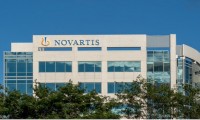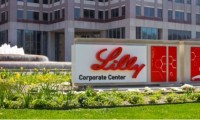-
BIO-THERA Signs License and Commercialization Agreement with Macter for BAT1706
- Source: drugdu
- 83
- January 5, 2024
-
As ICER places a spotlight on pharma’s price hikes, J&J, Roche and more hit back
- Source: drugdu
- 95
- December 13, 2023
-
As Stelara cliff looms, J&J expects 25 blockbuster drugs to drive future sales growth
- Source: drugdu
- 97
- December 7, 2023
-
With filing in Sanofi and Mylan insulin lawsuit, FTC amps up scrutiny on pharma’s patent tactics
- Source: drugdu
- 102
- November 23, 2023
-
Orphelia pushes boundaries with regulatory barriers for pediatric indications
- Source: drugdu
- 93
- November 16, 2023
-
HHS Considers Removing J&J’s Stelara from Medicare Drug Price Negotiations
- Source: drugdu
- 114
- November 9, 2023
-
Novartis Inks Potential $1.3B Contract with Korean Biotech for Small Molecule
- Source: drugdu
- 108
- November 9, 2023
-
More Than 60 Groups Ask Senate Leadership To Pass Legislation To Lower Drug Prices
- Source: drugdu
- 100
- November 3, 2023
-
Lilly’s Mirikizumab Shows Long-Term Remission in Phase III Crohn’s Trial
- Source: drugdu
- 110
- October 14, 2023
-
Takeda to Pull Lung Cancer Drug from Market After Failed Confirmatory Study
- Source: drugdu
- 197
- October 10, 2023
your submission has already been received.
OK
Subscribe
Please enter a valid Email address!
Submit
The most relevant industry news & insight will be sent to you every two weeks.













